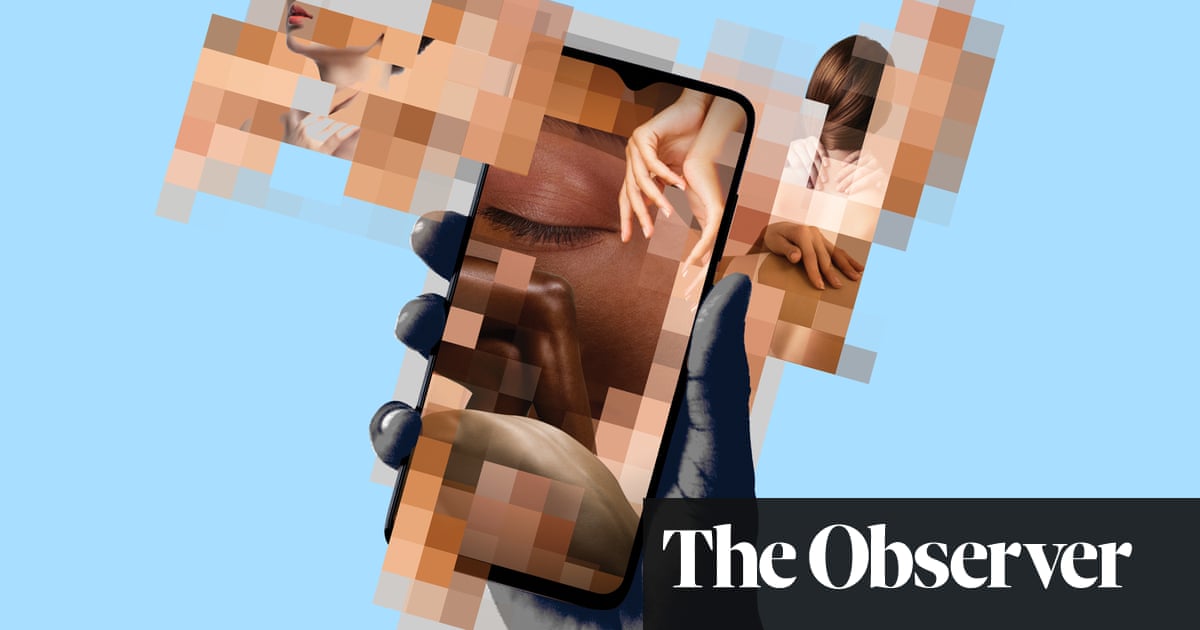A splinter of desperation has attached itself to my sorry attempts to romanticise my life. I guess the project started in lockdown as I, along with everyone else, scrabbled around for ways to get through the days with our humanity intact. I lit little candles, you know. Kept the fairy lights on. Working from home, I wore a heel under the desk, though that was short-lived as I tripped on my dressing gown. I upgraded said gown, incidentally – on eBay I bought 1 x silky kimono thing, and for the darker months, in which we now find ourselves, something belted and lilac in silk velvet. The plan was that I could always throw it on top of my grumping thermals to add that shard of glamour when the Asda delivery man arrived, but I fear it falls slightly short of the 1930s Hollywood vision I was aiming for, and I look more like “a person going through something”.
Which to be fair, is not not true. Who of us, especially those of us on a similar quest, those of us intent now on “appreciating the little things”, “romanticising our life”, as the phrase goes – can say different? We are the people who were drawn to this as a kind of call to action, keen to try to “live with intention” and look for moments of beauty, at least in part because of our inability to see it anywhere else without squinting. At first, the content this inspired was kind of lovely, in the right mood, at other times vaguely sickening. Nice ladies making extravagant coffees, and lots of tulips, avocado toast. There was something refreshing about the feeling that we were zooming in on little normal lives rather than watching grand ones from afar, beautiful people living beautifully, beyond our means. It was a quiet renouncing of the aspirational “wellness” world, and an embrace of accessible moments of joy. Very difficult to argue with that. Very difficult for maybe, like, six months?
Recently, I saw one of those videos of a romanticised life that was so excruciating it made my spine itch. I’ll describe it here from memory, because the thought of returning to it un-thrills me – I have this sensory allergy to the sound or feel of unglazed pottery, and this embodied for me that horrible shiver. So, some girl is running a bath, but it’s more of a stew – bath salts, petals, it brought to mind the witch in Hansel and Gretel, preparing her pot. There were too many accessories required for this experience, too much admin for a process the purpose of which is, at best to relax, at worst to scrub, perhaps, dried vomit from a shoulder. But its horrors instantly rammed a nail, for me, into the coffin of a gentle trend.
The initial appeal of romanticising one’s life had been an invitation to appreciate the little things, because we felt we had no control over anything larger. You might not be able to fix the climate, the thinking went, but you certainly can fix a cocktail. Rather than focusing on an encroaching war, allow yourself maybe to focus on a glass of daffodils, in sunlight. In doing so, we first clung on to mundanity, the small delights of day-to-day life, as an escape. But soon, I fear, we started elevating these moments and placing importance on them so they had slightly too much weight to bear, narrating short videos of pasta as if documentary footage. These romanticised scenes became not just banal (if sometimes beautiful) moments in a day, but an entire lifestyle. Teethbrushing as narrative arc. Aspirational water bottle-filling at the sink. By sharing these dull and private gestures they were granted even more importance, beyond even the intimate significance we’d already attached to them, and they became examples of (and here is another phrase that sprung out of the internet in recent years, attaching itself abstractly to modern life) “main character energy”.
This revolves around the idea that if life is a story, you are the star. Picture the influencer forcing passersby to walk around her as she perfects her selfie, or the man on the bus watching a noisy show on his phone. In the same way, our perfect little baths don’t just encourage us to look inwards, but also to turn away from the larger world, and all its less-aestheticised but crucial opportunities for connection. When we began scratching around for ways to romanticise our lives the purpose was surely to notice these fragments of our domestic worlds in order to enjoy the real world beyond them. Not, as seems to be the case, leave it, and everybody in it, behind altogether.
I sit now with a little candle burning. I got it last year out of an advent calendar in a raffle at work, I think it’s meant to smell of fig. It’s nice, but these tricks only go so far – just as melting candles are not really burning fruit, these romanticised moments are not really love, a fact that becomes more clear as the bathing videos veer increasingly away from spa and towards the sheep dip. As winter descends, the impulse is to focus on these small romanticised comforts, the candles, the curtains closed, but I’m doing so now with one eye on the real world, to avoid falling too far into fantasy.
Email Eva at [email protected] or follow her on Instagram @evawiseman

.png) 1 month ago
11
1 month ago
11













































